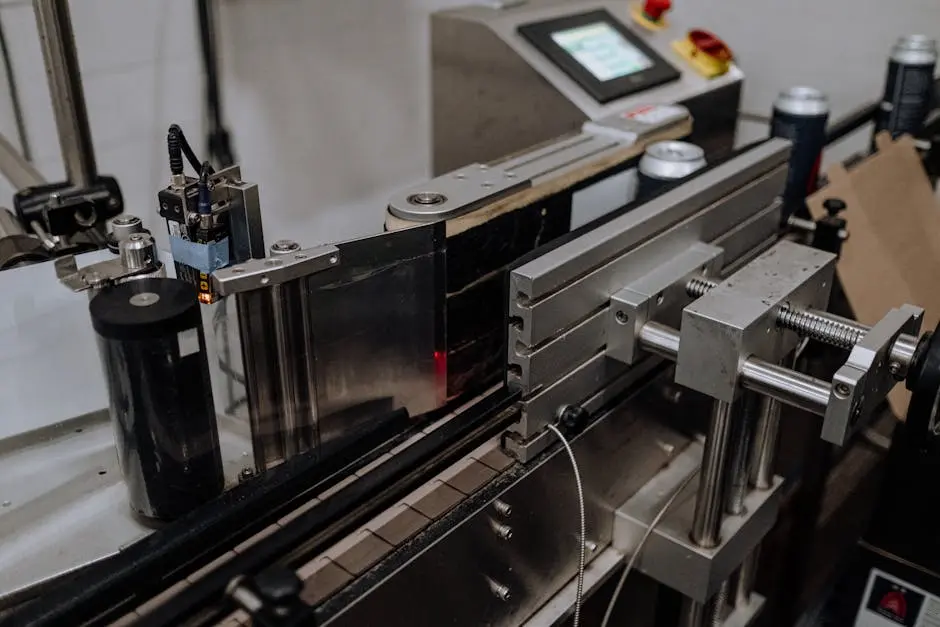Understanding the Role of Advanced Fabrication in Production
Advanced fabrication plays a pivotal role in modern production processes, revolutionizing the way manufacturers create and deliver products. By harnessing cutting-edge technologies and innovative techniques, advanced fabrication services empower businesses to streamline their operations, reduce costs, and enhance overall efficiency. Understanding the significance of advanced fabrication is crucial for companies looking to stay competitive in today’s rapidly evolving industrial landscape.
When we talk about advanced fabrication, we delve into a realm where precision meets creativity and efficiency. It’s a realm where traditional manufacturing methods transcend into a realm of digitalization and automation. This shift towards advanced fabrication isn’t just a trend; it’s a necessity for businesses striving to optimize their production processes and meet the demands of a dynamic market.
The integration of advanced fabrication technologies, such as 3D printing, Computer Numerical Control (CNC) machining, and robotics, has redefined what is possible in modern production facilities. These technologies enable manufacturers to achieve unparalleled levels of accuracy, speed, and customization, setting new standards for operational excellence in the manufacturing sector.
Moreover, advanced fabrication empowers companies to adapt to changing market trends and consumer preferences with agility and innovation. The ability to swiftly modify designs, optimize production workflows, and rapidly prototype new ideas gives businesses a competitive edge in an environment where adaptability is key to success.
In essence, advanced fabrication is not just about creating products; it’s about transforming the way businesses approach production. By embracing advanced fabrication services, companies can elevate their production capabilities, drive continual improvement, and position themselves for sustained growth in an increasingly competitive marketplace.
Streamlining Processes with Precision Technology
One of the primary benefits of advanced fabrication services is the ability to streamline production processes through the integration of precision technology. Precision plays a crucial role in manufacturing, where even the smallest deviation can have significant repercussions on product quality and consistency.
By leveraging advanced fabrication tools and equipment, companies can achieve levels of precision that were previously unattainable. Whether it’s laser cutting systems that deliver micron-level accuracy or automated assembly lines that ensure perfect alignment, precision technology is the cornerstone of efficient and error-free production.
The marriage of precision technology with advanced fabrication processes not only enhances the quality of end products but also optimizes the use of resources and reduces waste. Every cut, every mold, and every weld is executed with surgical precision, minimizing material loss and maximizing output efficiency.
Furthermore, precision technology enables manufacturers to create intricate and complex designs with ease, opening up new possibilities for product innovation and differentiation. From aerospace components to medical devices, the impact of precision in advanced fabrication extends across a wide range of industries, driving progress and pushing boundaries.
In the realm of production efficiency, precision technology is like the conductor of an orchestra, harmonizing the various elements of the manufacturing process to create a symphony of productivity and quality. It’s the fine-tuner that ensures every step in the production chain works in perfect unison, resulting in optimized workflows and superior outcomes.
Maximizing Output Through Automated Systems
Automation lies at the core of advanced fabrication services, offering manufacturers the means to maximize output and minimize production time. Automated systems bring a level of efficiency and consistency that far surpasses manual labor, allowing businesses to scale their operations without sacrificing quality or speed.
In the era of Industry 4.0, where interconnected devices and smart technologies drive industrial processes, automated systems have become indispensable for companies aiming to boost their productivity levels. The seamless integration of robotics, Artificial Intelligence (AI), and Internet of Things (IoT) devices enables manufacturers to achieve a level of operational efficiency that was once unthinkable.
By automating repetitive tasks and optimizing production workflows, businesses can significantly increase their output capacity while reducing the risk of errors and inconsistencies. Automated systems work tirelessly around the clock, ensuring that every operation is executed with precision and speed, leading to enhanced productivity and profitability.
Moreover, automated systems provide manufacturers with the flexibility to adapt to fluctuating demand levels and market conditions swiftly. Whether ramping up production during peak periods or adjusting output to meet changing customer requirements, automated fabrication processes offer the agility and responsiveness necessary to stay ahead in a dynamic business environment.
In essence, automation is the engine that drives the efficiency of advanced fabrication services, allowing companies to achieve unparalleled levels of productivity and performance. By harnessing the power of automated systems, manufacturers can unlock new potentials for growth, innovation, and competitiveness in the global marketplace.
Improving Quality Control with Cutting-Edge Solutions
Quality control is a critical aspect of modern manufacturing, ensuring that products meet the highest standards of performance, reliability, and safety. Advanced fabrication services offer cutting-edge solutions that revolutionize the way companies monitor and uphold quality throughout the production process.
With the advent of advanced inspection technologies, such as 3D scanning systems, Computer-Aided Design (CAD) software, and real-time monitoring devices, manufacturers can implement rigorous quality control measures at every stage of fabrication. These solutions enable businesses to detect defects, deviations, and anomalies early on, preventing costly rework and ensuring consistency in product quality.
The integration of cutting-edge quality control solutions not only enhances the reliability of manufactured goods but also instills confidence in customers regarding the consistency and integrity of the products they receive. By embracing advanced quality control practices, companies can build a reputation for excellence and reliability, fostering long-term customer loyalty and trust.
Furthermore, real-time data analytics and predictive maintenance tools empower manufacturers to proactively address quality issues and optimize production processes for maximum efficiency. By leveraging actionable insights derived from cutting-edge quality control solutions, businesses can continuously improve their operations, reduce defects, and elevate overall product quality.
In the realm of quality control, advanced fabrication services act as a gatekeeper of excellence, ensuring that only products that meet stringent criteria leave the production line. By adopting cutting-edge solutions for quality assurance, companies can deliver superior goods that meet and exceed customer expectations, setting a benchmark for quality in the industry.
Enhancing Flexibility and Customization Opportunities
Flexibility and customization are key factors driving the adoption of advanced fabrication services in modern manufacturing. The ability to tailor products to meet specific customer requirements while maintaining flexibility in production processes is a game-changer for businesses seeking to differentiate themselves in a crowded marketplace.
Advanced fabrication technologies empower companies to offer personalized solutions that cater to individual preferences and industry-specific demands. Whether it’s rapid prototyping for product development or on-demand manufacturing for bespoke components, the flexibility inherent in advanced fabrication processes opens up a world of possibilities for customization and innovation.
From custom-designed parts to unique product configurations, advanced fabrication services enable manufacturers to break free from the constraints of mass production and embrace a more personalized approach to manufacturing. This shift towards customization not only enhances customer satisfaction but also fosters brand loyalty and differentiation in a competitive market landscape.
Moreover, the agility afforded by advanced fabrication technologies allows companies to respond swiftly to changing market demands and emerging trends. Whether adapting designs on the fly or reconfiguring production processes to accommodate new requirements, the flexibility inherent in advanced fabrication services equips businesses with the tools they need to stay ahead of the curve.
In essence, flexibility and customization are the cornerstones of advanced fabrication services, offering companies the ability to craft tailored solutions that resonate with customers and drive business growth. By embracing flexibility and customization opportunities, manufacturers can create unique value propositions that set them apart in an increasingly competitive marketplace.
Optimizing Efficiency Across Production Chains
Efficiency is the lifeblood of successful production chains, and advanced fabrication services play a pivotal role in optimizing workflows, reducing lead times, and enhancing overall operational efficiency. By implementing advanced fabrication technologies, companies can streamline their production chains and unlock new levels of productivity and performance.
One of the key drivers of efficiency in modern manufacturing is the seamless integration of different production processes through advanced fabrication solutions. Whether it’s additive manufacturing techniques that eliminate the need for multiple tooling setups or digital twinning technologies that synchronize virtual and physical production environments, advanced fabrication services bridge the gap between design and execution.
The optimization of production chains with advanced fabrication technologies not only accelerates time-to-market but also reduces costs associated with inventory management, logistics, and resource allocation. By creating efficient and interconnected production workflows, companies can minimize waste, improve resource utilization, and enhance supply chain resilience.
Furthermore, the real-time visibility and traceability offered by advanced fabrication solutions empower manufacturers to track and monitor every stage of the production process, identifying bottlenecks, optimizing resource allocation, and ensuring on-time delivery of finished goods. This transparency and control allow businesses to respond proactively to challenges and opportunities, driving continuous improvement and operational excellence.
In summary, optimization is the hallmark of advanced fabrication services, enabling companies to fine-tune their production chains for maximum efficiency and effectiveness. By optimizing workflows, minimizing lead times, and enhancing process visibility, manufacturers can achieve new heights of operational excellence and competitiveness in the global marketplace.


